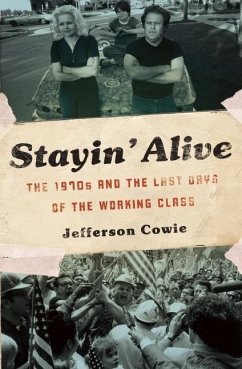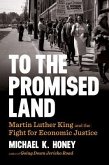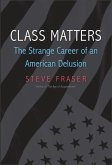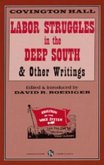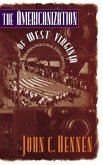An epic account of how middle-class America hit the rocks in the political and economic upheavals of the 1970s, this wide-ranging cultural and political history rewrites the 1970s as the crucial, pivotal era of our time. Jefferson Cowie's edgy and incisive book--part political intrigue, part labor history, with large doses of American musical, film, and TV lore--makes new sense of the 1970s as a crucial and poorly understood transition from New Deal America (with its large, optimistic middle class) to the widening economic inequalities, poverty, and dampened expectations of the 1980s and into the present. "Stayin' Alive" takes us from the factory floors of Ohio, Pittsburgh, and Detroit, to the Washington of Nixon, Ford, and Carter. Cowie also connects politics to culture, showing how the big screen and the jukebox can help us understand how America turned away from the radicalism of the 1960s and toward the patriotic promise of Ronald Reagan. Cowie makes unexpected connections between the secrets of the Nixon White House and the failings of George McGovern campaign; radicalism and the blue-collar backlash; the earthy twang of Merle Haggard's country music and the falsetto highs of "Saturday Night Fever." Like Jeff Perlstein's acclaimed "Nixonland, ""Stayin' Alive" moves beyond conventional understandings of the period and brilliantly plumbs it for insights into our current way of life.
